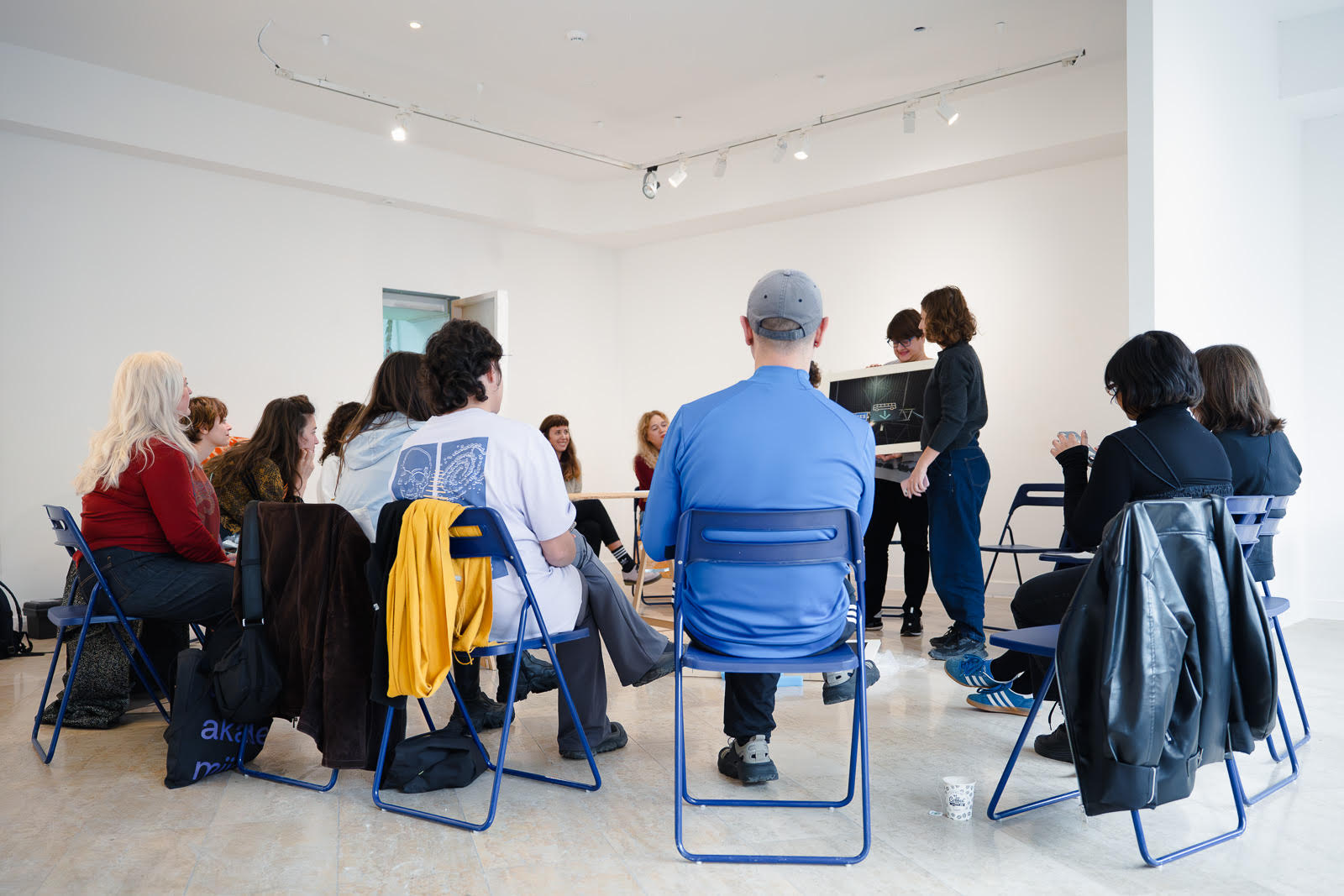Please, introduce yourself and your artistic practice. Where and when do you work/create?
My name is Yulia Krivich. I was born in Ukraine, and I live in Poland. I’m a visual artist, photographer and part-time activist, participant of Za*Group (foreign artists living in Poland). Also an educator in the Academy of Arts in Szczecin in Photography & Postartistic Studio. Usually, I work with photography, public space and very recently with my own body.
The banner Working for yourself, you work for the country, 2021.
The baner is dedicated to the May 1st Labor Day holiday. The slogan is an ironic paraphrase of the communist May 1st slogan "working for the country, you work for yourself".
The ten languages into which the slogan was translated are the languages of migrants who most often apply for residence cards, permanent residence cards and humanitarian cards. The list of languages is based on the analysis of the applications available at https://migracje.gov.pl/ for the last 10 years.
Smoke, photography from Daring&Youth series
Which mode of education was the one that made an impact on you the most? (within or outside official institutions)
A few years ago, I participated in the School of Looking, an interdisciplinary collaboration in Warsaw.
The project involved a group of practitioners - people who professionally deal with looking and images, although in different areas, using different methods and tools. Educators, artists, curators, social researchers, activists, programmers, graphic designers, theater directors, painters, theater educators, translators, editors, and anthropologists met during nine monthly meetings of the School of Looking to use knowledge in the field of visual culture to conduct practical exercises aimed at reflecting on selected aspects of social reality.
During this school I made my own flag In Ukraine.

How do you feel about collaborations and collectivity in the changed circumstances of limited possibilities of getting together?
During the pandemic, I had a great need to unite with others. That is why I took part in the action against the elections that were to take place in Poland in 2020 during the first wave of the pandemic. We walked with 14m letter-transparent (reference to Tadeusz Kantor happening from 1967) through the center of Warsaw. After that we were fined 10,000 zlotych each. It was an obvious repression by the authorities. There were ten of us, so for the fines we needed 100,000 PLN (about 22,000 €), which we, as cultural workers, obviously did not have. We made a fundraiser and collected the entire amount in three days! In my opinion, it was a success of the whole action - this gesture of solidarity of cultural workers who donated 10-20€ during the crisis to help and support us in such an emergency.

During the pandemic, I had a great need to collaborate and show solidarity. That's why, together with Vera Zalutskaya and Yura Biley, we created the ZA* (Foreign Artists Living in Poland) project to support artists with migration experience living in Poland. Our first project was ZA*ZIN.

How do you see the issue of artistic productivity in times of the pandemic?

Which art work(s) do you come back to or keep in mind?
One of my favorite work recently is za_s_xid by Vova Vorotniov.
In April 2017, Vova Vorotniov walked 1000km eastward from his hometown, the mining city of Chervonohrad in western Ukraine, to the Donbass. Traditionally the coal mining center of the Russian Empire and, later, the main industrial centre of the Soviet Union, much of the region, including the cities of Donetsk and Luhansk, has been the site of a war between the Ukrainian government and Russia-backed separatists since 2014. For his performance, Vorotniov carried a piece of coal from Chervonohrad through Ukraine's vast rural heartland, documenting the places he travelled through for his followers on Instagram every day for several months. When he arrived at his destination, the city of Lysychansk, just to the west of the frontline, he gifted the coal to a local history museum where it was catalogued and became part of their collection.
What would you wish for the post pandemic art world?




